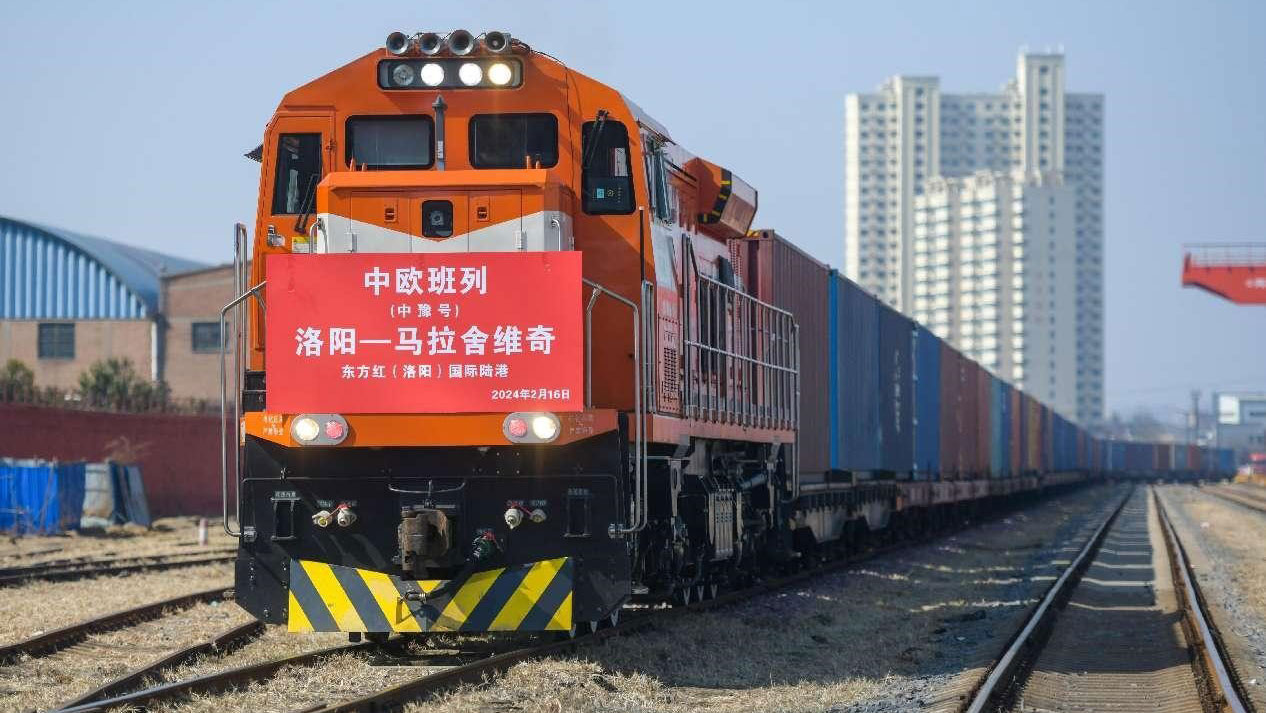China's achievements in nuclear technology benefit developing countries
Recently, China announced that it was opening its nuclear research facilities in batches to international scientific institutions and nuclear energy companies for cooperation purposes. It is a step in the right direction.
The first batch to be opened has ten key facilities, including the nuclear fusion reactor HL-3, a test reactor for medical isotopes, the world's first third-generation underground research lab, and an advanced research reactor, considered to be one of the six major neutron sources in the world.
China’s decision to open its nuclear facilities will help many countries to conduct research and acquire nuclear technology for peaceful use. Currently, many countries are facing an energy crisis. The most vulnerable are developing countries, whose economies cannot support the rising cost of energy. Nuclear energy is the source of one of the cheapest modes of energy – electricity. In addition to the production of nuclear electricity, nuclear technology can play a miraculous role in the health and agriculture sectors, and also has many other peaceful uses.
China’s announcement that it will open its nuclear facilities to the international community has garnered widespread admiration and appreciation, particularly from developing nations. These nations, often marginalized and subjected to the hegemony and restrictions imposed by a few dominant powers, see China's gesture as a significant step towards fostering greater global cooperation and inclusivity.
China's commitment to supporting the development aspirations of smaller and weaker nations, particularly those in the developing and underdeveloped world, is evident. The nation is being increasingly recognized for its proactive stance in global affairs and its efforts to promote mutually beneficial relationships based on win-win principles.
China has been victimized by some Western nations and faced sanctions. It has been deprived of the latest technologies and denied access to modern research. However, China is in a position of not being dependent on other nations, but is willing to share its experience with all other friendly and developing nations.
Nuclear technologies can play a revolutionary role in developing countries’ efforts to boost their economies and development. The civilian use of nuclear technology can resolve energy crises and enhance agricultural output. Nuclear technology can contribute to the health sector, which is greatly needed in most developing countries.
Pakistan, a steadfast ally of China, stands to benefit from this initiative. Like many other developing countries, Pakistan grapples with the challenge of energy scarcity, which poses a significant obstacle to its economic progress. In light of this, leveraging nuclear technology becomes imperative for Pakistan to address its energy needs effectively. With its existing nuclear infrastructure and adherence to international safety standards set by bodies such as the International Atomic Energy Agency (IAEA), Pakistan is well-positioned to harness the potential of nuclear energy for peaceful purposes.
The prospect of increased collaboration between China and Pakistan in the nuclear domain holds promise for addressing Pakistan's energy and economic challenges. As China opens up more nuclear facilities, opportunities for enhanced cooperation and the utilization of nuclear technology for various sectors, including health and agriculture, are expected to grow.
Beyond Pakistan, the broader international community views China's emergence as a beacon of hope for nations that have been historically oppressed, deprived, and coerced by dominant powers. Chinese leadership, cognizant of these sentiments, is poised to take further steps in fostering a more equitable and inclusive global order in the foreseeable future.
In essence, China's decision to open its nuclear facilities represents a significant stride towards fostering global cooperation and addressing the needs of nations facing pressing challenges. By extending its hand in partnership and solidarity, China exemplifies a commitment to shared prosperity and a more balanced world order.
Zamir Ahmed Awan is a non-resident fellow at the Center for China and Globalization (CCG) and a sinologist at the National University of Sciences and Technology in Pakistan. Email: awanzamir@yahoo.com.
The opinions expressed in this article reflect those of the author, and do not necessarily reflect those of People's Daily Online.
Photos
Related Stories
- Hyping tritium content in Chinese nuclear plant effluents just an attempt to divert attention: experts
- Advisers call for nuclear to be included in green energy transition
- Comicomment丨Ocean in sorrow: influx of nuclear-contaminated wastewater
- Outer dome of China's small nuclear reactor Linglong One installed
- Suspicions linger over safety of Japanese nuclear power plants after oil leakage following Noto quakes
- Japan begins 3rd round of contaminated water dumping amid international opposition
- US nuke curbs unlikely to hurt, say specialists
- Japanese rally against ocean discharge of nuke wastewater, gov't promise in doubt
Copyright © 2024 People's Daily Online. All Rights Reserved.









